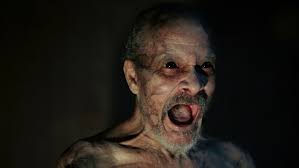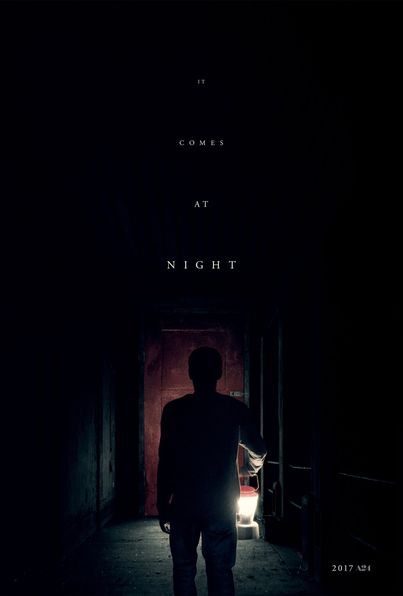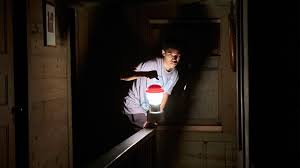It Comes at Night (2017)

Suggested videos for you:
The Darkest Minds 2018
Super intelligent zombies with sex hormones || Day Of The Dead Bloodline
“It Comes at Night”: A Haunting Exploration of Fear and Trust Directed by Trey Edward Shults

Released in 2017, “It Comes at Night” is a chilling psychological horror film directed by Trey Edward Shults, known for his ability to blend intimate character studies with atmospheric tension. The film stars Joel Edgerton, Carmen Ejogo, and Kelvin Harrison Jr., and has garnered attention for its unsettling portrayal of human nature in the face of existential dread. With its minimalist approach and complex themes, “It Comes at Night” stands out as a thought-provoking entry in the horror genre, exploring the fragility of trust amid a world gone awry.

Set in a post-apocalyptic world ravaged by a mysterious disease, the narrative follows Paul (Joel Edgerton), a protective father who lives with his wife, Sarah (Carmen Ejogo), and their teenage son, Travis (Kelvin Harrison Jr.), in a secluded house deep in the woods. The film opens with a gripping scene that establishes the ominous atmosphere, as the family grapples with the loss of a loved one and the threat of the unknown. Their isolated existence is disrupted when they encounter another family seeking refuge, leading to a tense negotiation for survival.

Shults’s direction is characterized by a slow-burn intensity that keeps viewers on edge. The film employs a muted color palette and minimal dialogue to create a sense of isolation and foreboding. Cinematographer Drew Daniels captures the claustrophobic setting of the family’s home, emphasizing the contrast between their fragile safety and the dangers lurking outside. The use of sound design further heightens the tension, with unsettling noises and silence amplifying the characters’ fears and uncertainties.

“It Comes at Night” is primarily classified as a psychological horror film, yet it also incorporates elements of drama and thriller. The film explores themes of paranoia, the nature of fear, and the breakdown of trust in dire circumstances. As the characters navigate their relationships, the narrative raises questions about the lengths one will go to protect loved ones and the moral dilemmas that arise in a survival situation. The horror elements are rooted in the characters’ psychological states, making the fear more palpable and relatable.
Joel Edgerton delivers a compelling performance as Paul, portraying a man torn between his protective instincts and the anxiety of potential threats. His nuanced depiction of a father fighting to keep his family safe resonates powerfully with audiences. Kelvin Harrison Jr. as Travis adds depth to the narrative, capturing the character’s internal struggles as he grapples with the realities of their situation. The supporting cast, including Carmen Ejogo and Christopher Abbott, enhances the film’s emotional weight, bringing complexity to the dynamics of fear and trust.
Upon its release, “It Comes at Night” received generally positive reviews from critics, who praised its atmosphere, performances, and Shults’s direction. While some viewers expected a more conventional horror experience, the film’s focus on psychological tension and character development set it apart from typical genre fare. Its ambiguous ending and open-ended questions prompted discussions about the nature of fear and survival in a world where trust is a luxury.
In conclusion, “It Comes at Night” is a haunting and thought-provoking exploration of human nature and fear. Directed by Trey Edward Shults, the film masterfully combines psychological horror with rich character development, creating a tense and unsettling experience for viewers. Through its atmospheric storytelling and profound themes, “It Comes at Night” invites audiences to reflect on the fragility of trust and the moral complexities of survival, ensuring its place as a distinctive entry in contemporary horror cinema.











